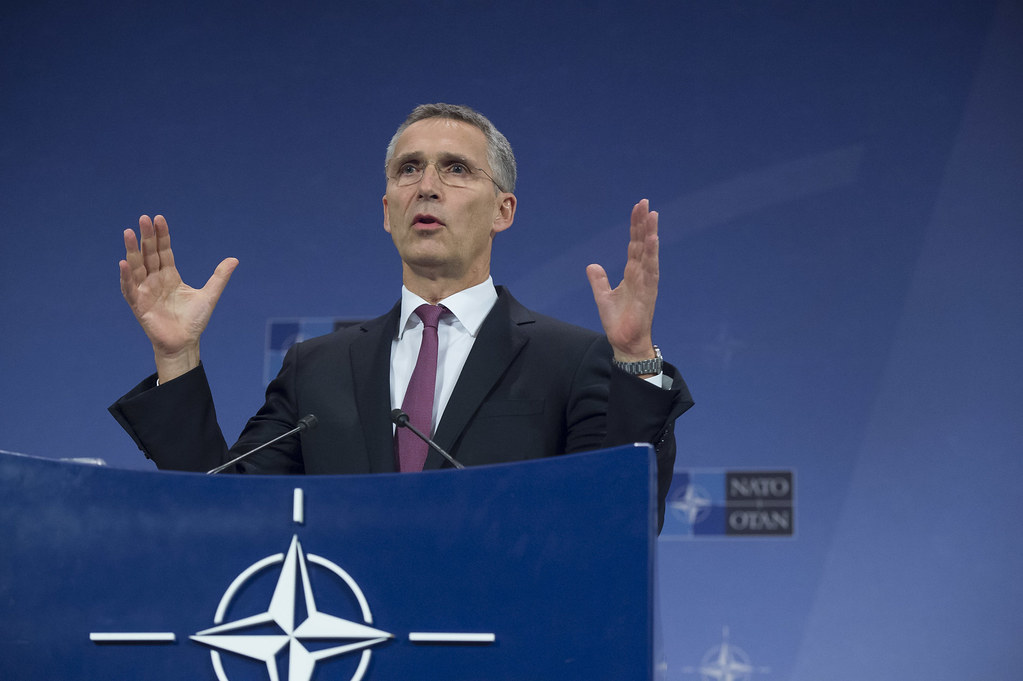Why is NATO more worried about Russia than about China?

NATO's new Strategic Concept defines Russia as "the most significant threat" to the security of the alliance. China, on the other hand, "is not our opponent," says Stoltenberg, but it must be kept an eye on. All the details
At the Madrid Summit, which will end today, NATO published its new Strategic Concept , that is the document that defines the long-term objectives of the organization: it will last until 2032. The previous one, dating back to 2010, he did not mention China at all and called Russia a "strategic partner". At the time, the Associated Press writes, the idea that Moscow could take the war to the borders of the alliance seemed implausible, although the country had already shown aggression with the 2008 conflict in Georgia, South Ossetia.
WHAT IS NATO WRITING (AND WHAT DOES IT DO) ABOUT RUSSIA
With the annexation of Crimea in 2014 and – above all – with the large-scale invasion of Ukraine, however, the context has definitely changed. In the new Strategic Concept, NATO then accuses Russia of using "coercion, subversion, aggression and annexation" to expand its sphere of influence and territory. The country is called "the most significant and direct threat" to the peace and security of alliance members.
Sweden and Finland, frightened by the Russian maneuvers, have been officially invited to join NATO. To address the concerns of Poland, Romania and the Baltic area in particular, the alliance said it will increase the size of its rapid reaction force from 40,000 to 300,000 by next year. And the United States – by far NATO's greatest military power – has announced the creation of a permanent headquarters for its troops stationed in Poland, as well as various reinforcements of defense capabilities in Italy, Germany and Spain.
The Strategic Concept then addresses issues such as cyber security (absent in the previous one) and the repercussions of climate change on security (extreme weather events could fuel social instability in already critical countries and favor the emergence of terrorist threats, for example) .
WHAT NATO IS WRITING ABOUT CHINA
The document also speaks of China, which – it reads – “challenges our interests, our security and our values” through “a wide range of political, economic and military tools to increase its global presence and project power”. Beijing is accused of carrying out "malicious hybrid and cyber operations" and of spreading disinformation about NATO and its members. “The People's Republic of China seeks to control key technological and industrial sectors, critical infrastructures, materials and strategic supply chains [such as clean energy , ed ]. It uses its economic leverage to create strategic dependencies and increase its influence. It strives to subvert the rules-based international order, including in the space, cyber and maritime domains ”.
According to NATO, the partnership signed in recent months by China with Russia is useful for both countries to promote their anti-democratic systemic views and "goes against our values and interests".
THE STOLTENBERG PRECISATION
NATO Secretary General Jens Stoltenberg specified that "China is not our adversary, but we must be aware of the serious challenges it poses". "China is building its military forces substantially, including nuclear weapons," he articulated. "He is bullying his neighbors, threatening Taiwan." And again: "it is monitoring and controlling its citizens through advanced technologies and spreading Russian lies and disinformation".
On the latter point, he added that "we see an ever deeper strategic partnership between Moscow and Beijing, and China's growing assertiveness and coercive policies have consequences for the security of our allies and partners". Beijing did not condemn the invasion of Ukraine; resumed Russian propaganda, accusing NATO of causing the crisis; he criticized the sanctions imposed by alliance members (and others) against Moscow.
Stoltenberg said, however, that NATO remains "open to constructive engagement" with China. But the presence as guests at the Madrid summit – for the first time – of the leaders of Australia, South Korea, Japan and New Zealand demonstrates the growing importance of the Pacific quadrant for the Atlantic alliance. The main task of which remains the contrast of Russia (once the Soviet Union) in Europe, which, however, is flanked by the balancing of China in Asia.
THE CHINESE ANSWER
China's Ambassador to the United Nations, Zhang Jun, replied : “We oppose certain elements clamoring for NATO's involvement in Asia-Pacific, or a version of NATO for Asia-Pacific based on the military alliance. The outdated Cold War script must not be repurposed in Asia-Pacific. Turbulence in some parts of the world must not be allowed in Asia-Pacific ”.
TWO DIFFERENT TREATMENTS
In short, NATO reserves two different treatments for Russia and China: the first is an adversary while the second is not, although it must be carefully monitored. Sources in the Financial Times revealed that members of the organization discussed China intensely, focusing in particular on important bilateral economic relations and different perceptions of the Chinese threat. After all, Beijing is far away, while Moscow is geographically close to those Eastern European countries which, in fact, are concerned about the Kremlin's foreign policy.
The restraint that NATO reserves for China after all, if compared to the much harsher tones used with Russia, is perhaps the consequence of the fears of the governments of Eastern Europe and the Baltic: they do not want a possible shift of the focus of ' the Atlantic alliance with Beijing may one day lead to a reduction in the resources and attention devoted to monitoring Moscow.
This is a machine translation from Italian language of a post published on Start Magazine at the URL https://www.startmag.it/mondo/concetto-strategico-nato-russia-cina/ on Thu, 30 Jun 2022 10:31:36 +0000.
